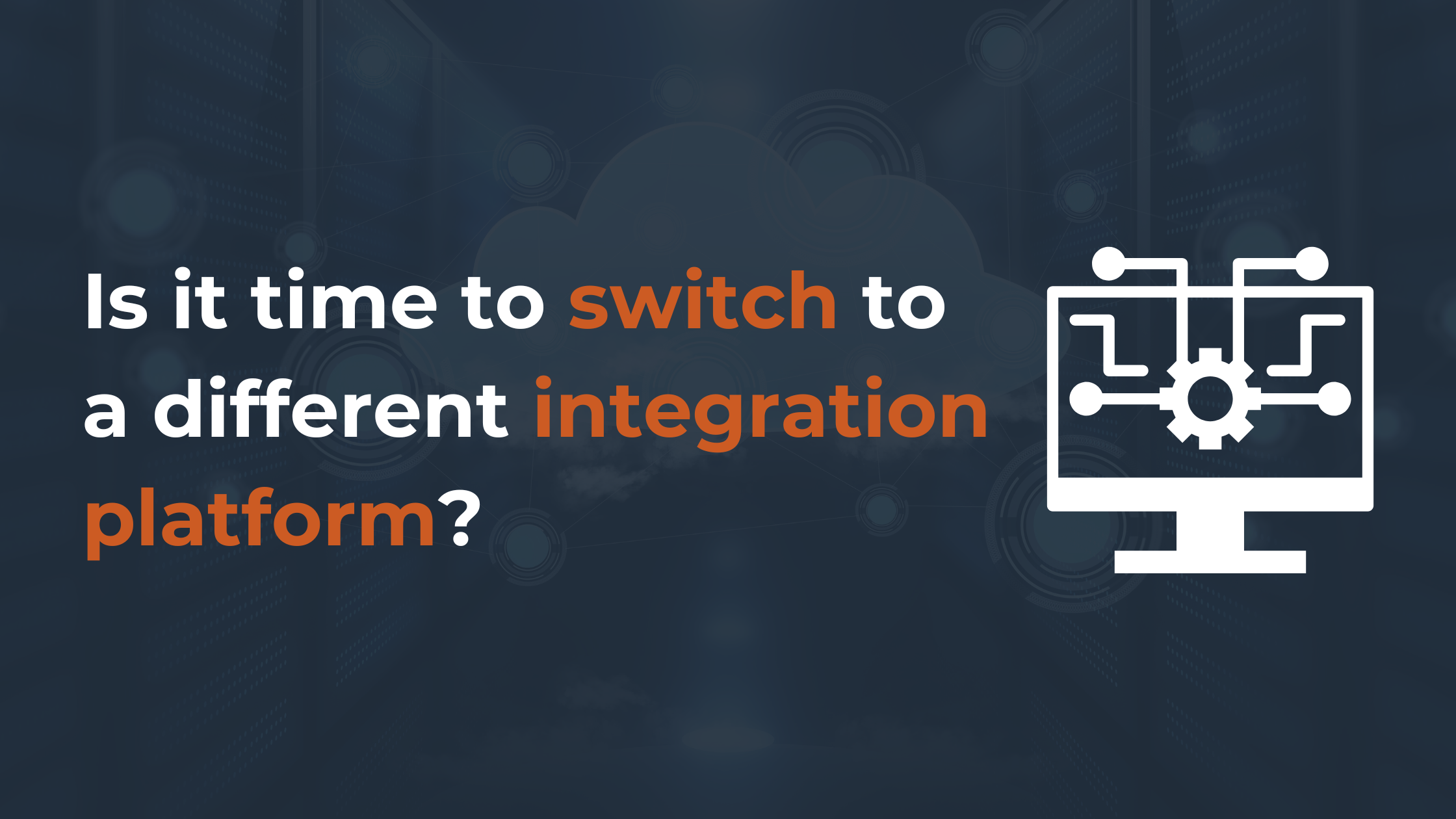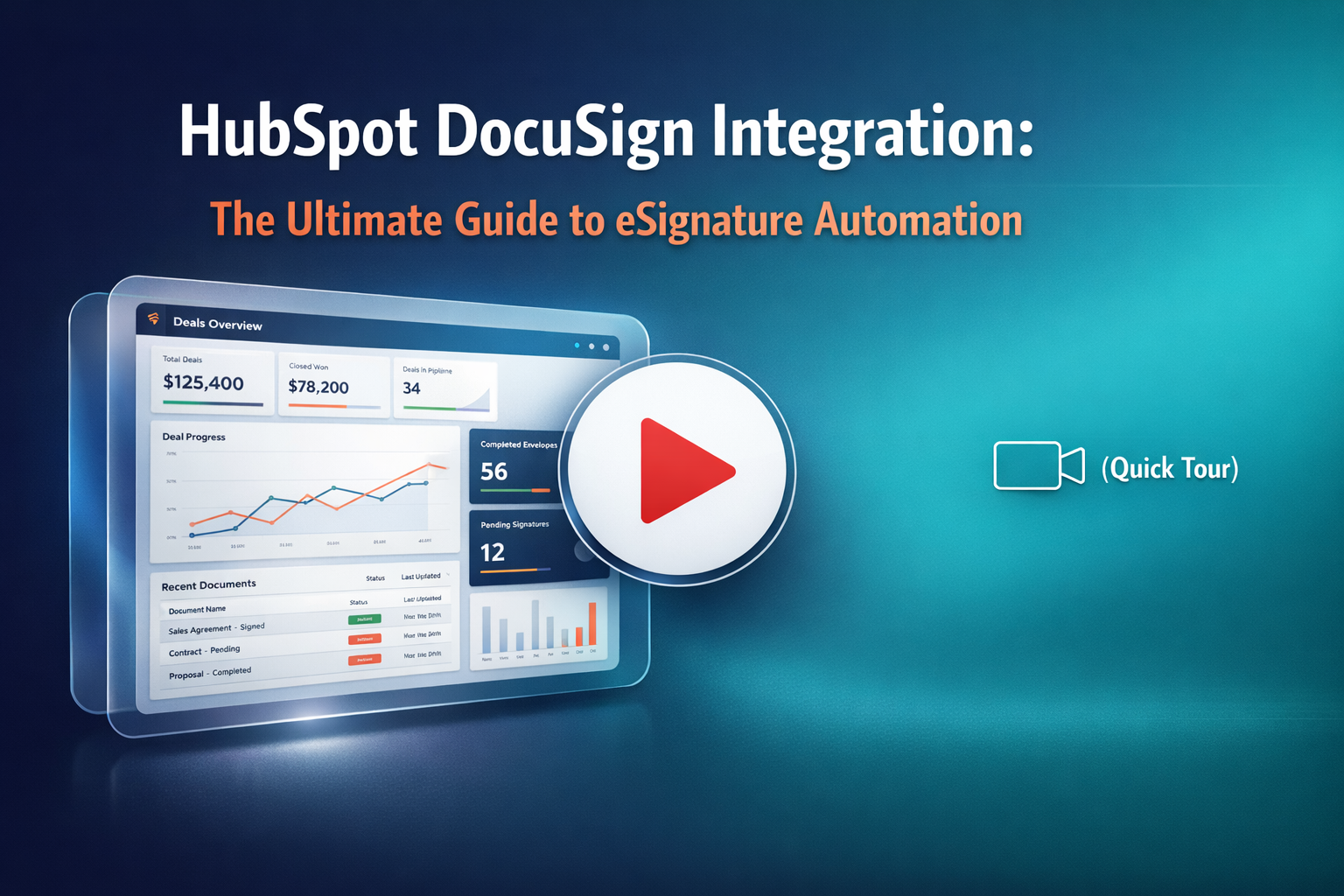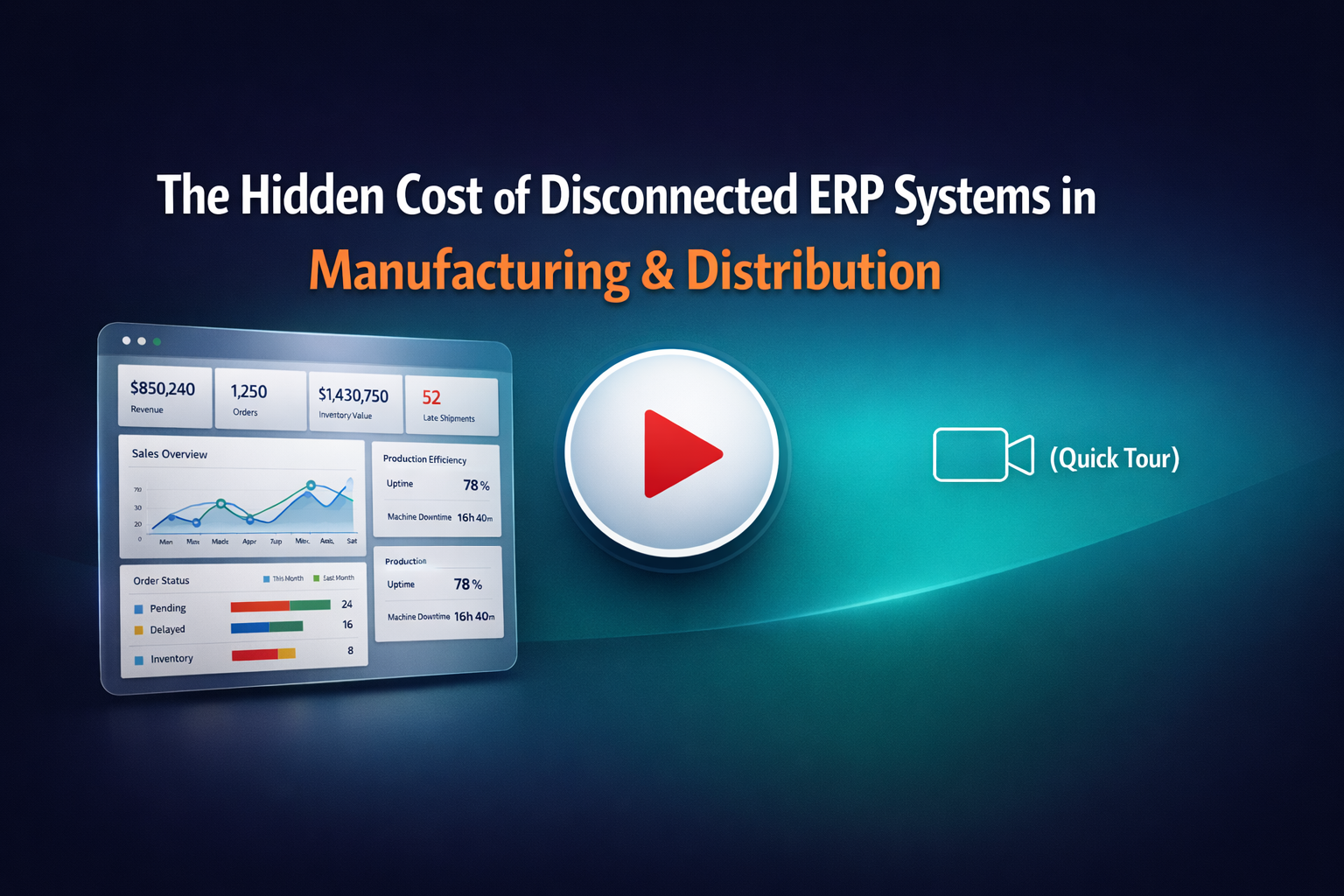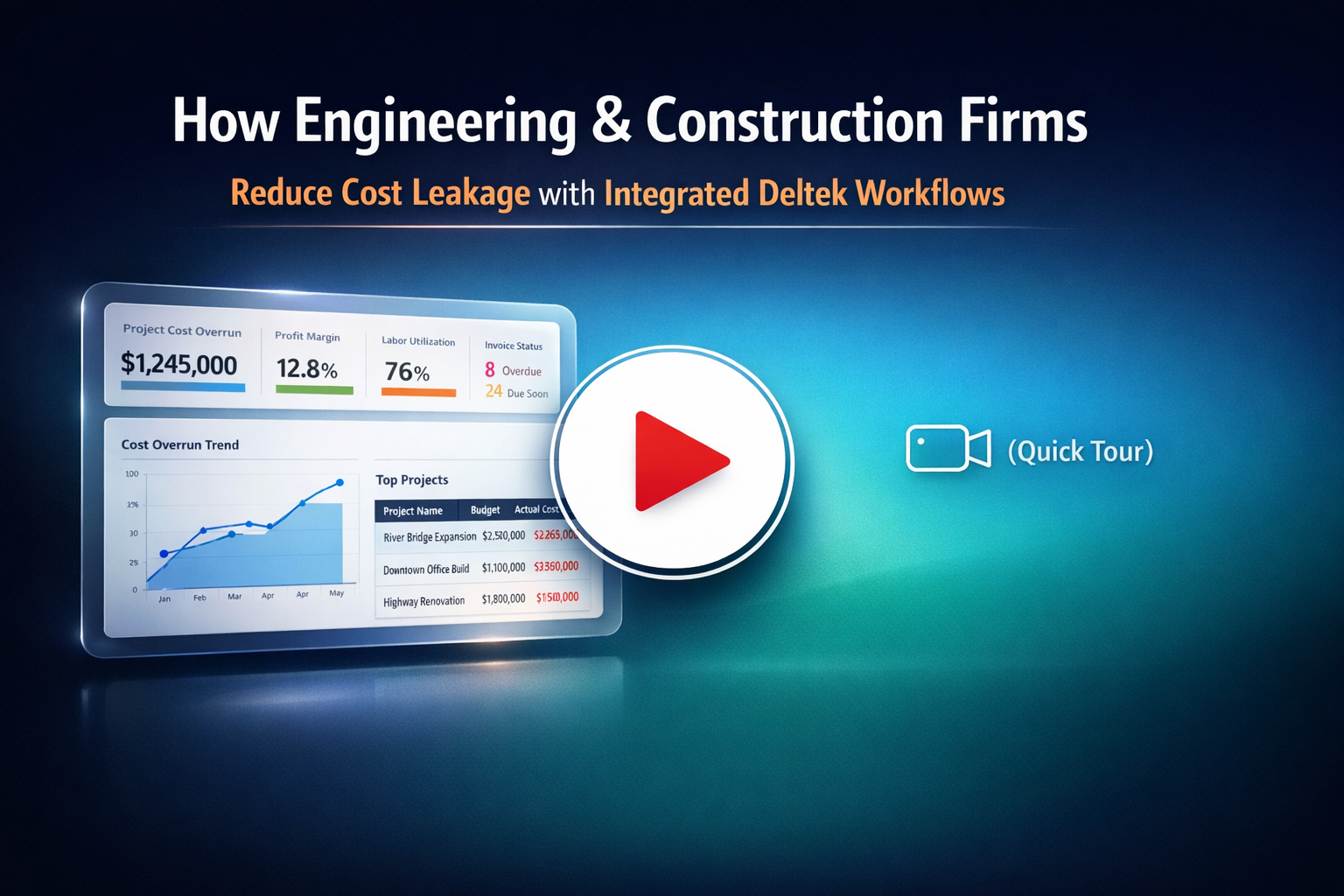Chances are, if you've implemented an integration, it hasn't been the smoothest of processes. Integrations rarely are. But how do you know when it's time to move on? Switching integration platforms can be messy and time consuming, and many iPaaS vendors are banking on the fact that you'll stick with them because it's such a hassle to make the switch.
Often, you'll continue with their solution, as painful as it might be, for several years, even if you're not getting from it what you hoped. Eventually, you should probably break up with them.
Here's what you should look out for:
1. You're getting nowhere with their support teams and hear "This is just the way it is"
You've spent countless hours going over the same issues with your vendor's support team without any real solutions being presented. Or, if solutions are presented, they're not quite what you need and are just a "patch".
If the vendor has become complacent or just plain refuses to make modifications to their software to accommodate reasonable requests, you're not getting what you need from the software and it's probably time to move on. This can be incredibly frustrating, especially when you know your business requirements are reasonable and the vendor should be able to accommodate them.
If the support team is consistently unresponsive or dismissive, it's a clear sign that they are not invested in your success.
Perhaps you've encountered issues with data mappings not working as expected, or bugs in the platform causing syncs to fail. When you reach out to the vendor's support team, do they simply shrug and tell you "that's just how the system works"? Or do they work diligently to understand the problem, propose solutions, and follow up until the issue is resolved?
An integration platform is a mission-critical tool - you need a vendor that will partner with you, not one that treats you like a nuisance.
2. Duplicates are often being created and you can't adjust the dedupe settings
Duplicate records are often inevitable, but if they're occurring frequently enough, you might get to the point where you have to hire a part time or temporary resource to help clean up your database for you. If the criteria that your company uses to distinguish records is not the same as your vendor, and if your vendor does not have the ability to customize the merging/deduping criteria, it might be time to move on.
Dirty data can have a ripple effect across your organization, leading to wasted time, inaccurate reporting, and frustrated end-users. An integration platform that can't handle deduplication effectively is simply not meeting your needs.
Look for an integration solution that allows you to define custom deduplication rules based on the fields that are most important to your business. The ability to tweak these settings as your requirements evolve is crucial. Vendors that force you to accept their "one-size-fits-all" approach to deduping are doing you a disservice.
Your data is the lifeblood of your organization - you need total control over how it's managed.
3. You can't sync the data that you really need
As an example, if you've set up an integration between a Marketing Automation system and a CRM and you're unable to sync the marketing data, such as website visits, clicked links, etc., due to limitations with the vendor's product, what's the point in using the vendor's software at all? It's probably time to move on.
The whole reason for implementing integrations is to create a "single source of truth" and ensure all your critical business data is in sync. If the integration can't facilitate the flow of data you need, you're not getting the expected value.
Think about the key data points that drive your business - things like sales pipeline, marketing engagement, customer support tickets, and so on. If your integration platform can't connect those disparate systems and keep the information up-to-date, how can you make informed, data-driven decisions?
An effective integration solution should be the glue that binds your tech stack together, not a roadblock that forces you to settle for incomplete information.
4. The cost of the product is increasing without any added value to you
You've been struggling with your iPaaS vendor, you've got a dozen open tickets, your data just isn't syncing, and now you've received a yearly subscription bill with a 40% increase? This is a pretty clear indication that your vendor's out of touch with your account and that you're not getting the attention that you need. It's time to move on.
Vendors should be transparent about their pricing and deliver incremental value with each price increase. If the cost keeps going up without any improvements to the platform, functionality, or support, you're not getting a good return on your investment.
When evaluating integration platforms, don't just look at the initial price tag. Consider the long-term TCO (total cost of ownership) and whether the vendor has a history of reasonable, value-based pricing. Will they work with you to find the right package for your needs, or will they try to upsell you on features you don't require?
The most expensive option isn't always the best - look for a vendor that provides excellent bang for your buck.
5. You're spending more time managing the integration than working with the synced data
The whole point behind data automation is to free up your time and your team's time to do what they really should be focusing on. If they're instead spending all of their time fixing issues resulting from the integration instead of following up on leads, the integration is costing you a lot more than just the annual subscription fee. It's definitely time to move on.
An integration platform should make your life easier, not create additional overhead and headaches for your team.
Think about the productivity gains you expected to see when you first implemented the integration. Are your employees actually experiencing those benefits, or are they bogged down troubleshooting problems? Time is money, and if your team is wasting valuable hours babysitting a finicky integration, that's a huge hidden cost. The right integration platform should streamline your workflows, not add complexity.
Overall, if you find yourself consistently running into these types of issues with your current integration platform, it's probably time to explore alternative options. The right integration tool can transform your business, but the wrong one can become a major liability. Don't be afraid to make a change if your current solution is not meeting your needs.
When evaluating new integration platforms, look for vendors that emphasize partnership, flexibility, and a laser-focus on customer success. The right platform should empower your team, not create additional strain. It's an investment in your company's future, so take the time to find a solution that will truly elevate your operations.
Switching integration platforms can be disruptive in the short-term, but the long-term benefits of finding the right fit are well worth it. With the right partner by your side, you can unlock new levels of productivity, data integrity, and business insights.
Don't settle for subpar performance - your organization deserves better.
Need to find a new middleware vendor? We can help!







